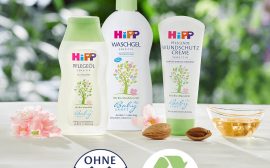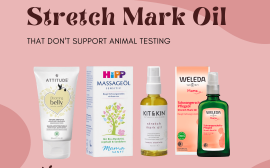These last 6 years, my favourite German drugstore has been DM-Drogerie Markt. We have 2 DMs in Offenburg while 1 or none from the other drugstores. That is probably one of the reasons why it is my favourite. I have bought many times products from the DM brands as I assumed that its brands were cruelty-free. Since DM brands are not certified, I asked emailed some questions with regards to one of the white-label brands Balea. As a 2021 resolution, I want to be more sure that I am supporting a cruelty-free brand.
About White Label Brands
As I said Balea is a white-label brand. This means that a drugstore like DM sends a request to manufacturers. They list what it wants, at what price etc. companies like DM are most of the time not really involved in each step of the production. They just order and the manufacturer delivers. At least that’s how I understood how white-label brands work.
After getting the reply from DM, I was wondering if it is worth it to email uncertified white-label brands. The company might not be much involved in the product journey as a normal brand would. There seems to be one German drugstore white-label brand that seems to be PETA certified. This got me thinking that in rare cases there are serious ones.
Is Balea certified cruelty-free?
No, Balea is not certified cruelty-free.
Does Balea or any third party test on animals?
My email to Balea was a set of questions. I was sent paragraphs that answered not really in the order of the questions I sent the company. Probably it is a pre-written template, ready to send to whoever asks about the brands’ statuses. So I spent the whole 8 hours trying to guess which question the company is answering and when.
- “We operate a strict policy to sell only humane and environmentally-friendly products. We are strongly against animal testing of any sort. No finished dm-brand product, including Balea, has ever been, nor will it ever be, tested on animals.“
DM mentions that the finished product is not tested on animals, which is good.
- “As far as we possibly can, we want to avoid any and all animal testing. Therefore, we require assurances from each of our suppliers to ensure that the products they sell to us are manufactured to international quality standards and comply with all legal requirements.”
It mention also that AS FAR AS IT POSSIBLY CAN it avoids animal testing. It leads me to think whether there were times they had to. Lastly, the assurance mentions legal requirements. I am wondering does it mean the animal testing ban or REACH where it might require testing some ingredients on animals when not enough proof is available. Since it mentions the manufactured product I assume it means the ban. It did not mention much about the ingredients only the following:
- German case-law, however, considers that consumers are not necessarily aware of the fact that at some point, somewhere in the world, the ingredients used in cosmetics could, in theory, have been tested on animals.”
To me, this sounds like either Balea is hiding behind a lie cause obviously its manufacturers have to source the lowest priced ingredients, like for example lowest-priced coconut oil, etc to make their products competitive, or they are unaware that Balea could make sure to look for ethical ingredient suppliers. It could also be that this is common knowledge that I haven’t yet confirmed. It’s sometimes not easy to say if a company is bluffing or if it’s stating facts. Then again as a white-label brand, it might be not able or want the hassle to have control on suppliers for ingredients so Balea might have come up with this sentence to protect itself.
So, using its words in my evaluation Balea products “could, in theory, have been tested on animals” by them or third parties.
Is Balea owned by a certified cruelty-free parent?
No, Balea is not owned by a certified cruelty-free parent company. German drugstore DM (Drogerie Markt) owns Balea. I got the impression that PETA Germany does not consider DM and its brands to be cruelty-free.
Does Balea sell cosmetics in China or any other country where animal testing is required?
Yes, Balea sells cosmetics in Mainland China. Some cruelty-free brands managed to get a certification from PETA and other organisations because they could avoid their products from being tested on animals. I have recently learnt that companies have found another loophole on how to avoid animal testing requirements in China. Balea seems to have chosen this loophole, which I will explain next.
What measures did Balea take to avoid pre-market tests in China?
This is selling through Tmall Global or Taobao Global platforms.
In this case, they store the products outside Mainland China, even close to the border where animal testing is not required. When a customer from Mainland China orders online, s/he receives it to her/his Mainland China address. It is a way to avoid customs, and animal testing requirements since the products are not commercially anywhere in Mainland China. Probably it’s similar to how you can order a product on AliExpress which has no EU certification without any check or charge by customs.
What is Balea’s cruelty-free status?
This solution that DM has found to sell its products in China would have convinced me that Balea is without animal testing. However, since it did not clarify much about the production process, as an ex-loyal customer, I regret to say that for me Balea is a grey area brand meaning a brand whose status is not clear and can’t be considered to be free from animal testing until there is more clarification. I hope Balea will decide to get certified and it will get clear.
Is Balea vegan?
No, Balea is not vegan but it does offer some vegan products. As usual vegan here only means that the product contains no animal-derived ingredients. It doesn’t guarantee anything about animal testing.
Which brands should I support instead?
Although I don’t consider DM white-label brands cruelty-free, it does not mean that I will be boycotting the whole franchise. I will still buy from DM just not DM white label brands this time. DM drugstores stock products from certified cruelty-free brands too. Hopefully, this will convince them more to make an effort to get certified. Check out my list of cruelty-free brands to learn more.
Source: DM’s reply as at 18.01.2021
“Many of the Balea products are vegan or vegetarian. An easy way to find out if a product is vegan or vegetarian is to check the label or go to our online shop at dm.de for the product features. We operate a strict policy to sell only humane and environmentally-friendly products. We are strongly against animal testing of any sort. No finished dm-brand product, including Balea, has ever been, nor will it ever be, tested on animals. The same standard is applied to the range of products we offer on the Tmall platform in China, as this has no impact whatsoever on our dm-brand production processes. As always, we remain true to our commitment: Animal testing is not required here and is not conducted or commissioned at any stage by or for ourselves.
We strive to work for the good of people and the environment. Along with the conservation of our natural resources, this includes the responsible stewardship of all animals. As far as we possibly can, we want to avoid any and all animal testing. Therefore, we require assurances from each of our suppliers to ensure that the products they sell to us are manufactured to international quality standards and comply with all legal requirements.
Animal testing for the development of personal care products has been prohibited since 1 June 1998 and was banned for decorative cosmetics in 1986. According to the German Cosmetics, Toiletry, Perfumery and Detergent Association (IKW), the cosmetics industry has voluntarily forgone animal testing for finished cosmetic products since 1989. A blanket ban on animal testing for cosmetic ingredients came into effect in March 2009.
German case-law, however, considers that consumers are not necessarily aware of the fact that at some point, somewhere in the world, the ingredients used in cosmetics could, in theory, have been tested on animals. Today, product claims such as ‘No animal testing‘ are therefore considered misleading. This explains why the name dm-drogerie markt cannot presently be found on the positive lists of cosmetic ingredients of animal welfare organisations. However, we are already working on ways to better communicate with our customers in this area.”




